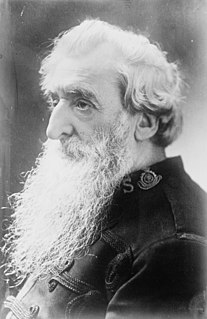A Quote by Lord Byron
This is the patent age of new inventions for killing bodies, and for saving souls. All propagated with the best intentions.
Related Quotes
This is the patent-age of new inventions For killing bodies, and for saving souls, All propagated with the best intentions; Sir Humphrey Davy's lantern, by which coals Are safely mined for in the mode he mentions, Tombuctoo travels, voyages to the Poles, Are ways to benefit mankind, as true, Perhaps, as shooting them at Waterloo.
I came from a tradition where souls were a theological reality, not a faith reality. Souls were for saving, not for communing. Souls were for converting and, once they were converted, they were to be left alone. Souls were too mystical, too subjective, too ambiguous, too risky, too... well, you know - New Age-ish.
In the world's history certain inventions and discoveries occurred, of peculiar value, on account of their great efficiency in facilitating all other inventions and discoveries. Of these were the art of writing and of printing - the discovery of America, and the introduction of Patent-laws. The date of the first ... is unknown; but it certainly was as much as fifteen hundred years before the Christian era; the second-printing-came in 1436, or nearly three thousand years after the first. The others followed more rapidly - the discovery of America in 1492, and the first patent laws in 1624.
The ethical system of these men of the New Republic, the ethical system which will dominate the world state, will be shaped primarily to favour the procreation of what is fine and efficient and beautiful in humanity — beautiful and strong bodies, clear and powerful minds, and a growing body of knowledge — and to check the procreation of base and servile types, of fear-driven and cowardly souls, of all that is mean and ugly and bestial in the souls, bodies, or habits of men.
Although human ingenuity may devise various inventions which, by the help of various instruments, answer to one and the same purpose, yet will it never discover any inventions more beautiful, more simple or more practical than those of nature, because in her inventions there is nothing lacking and nothing superfluous; and she makes use of no counterpoise when she constructs the limbs of animals in such a way as to correspond to the motion of their bodies, but she puts into them the soul of the body.






































